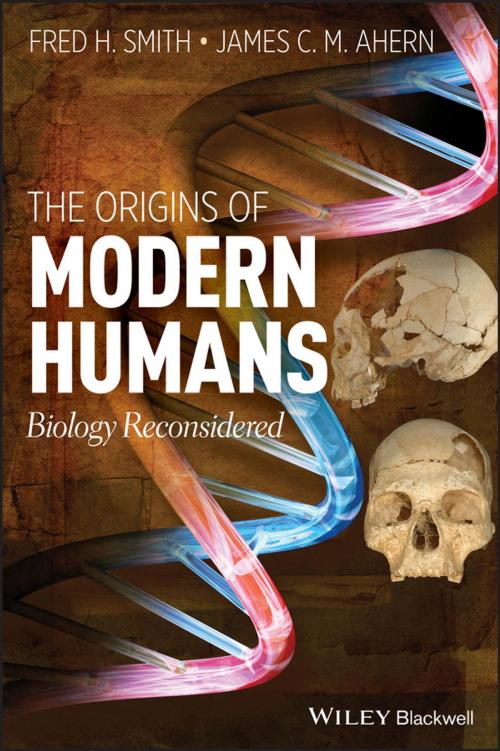The Origins of Modern Humans
Biology Reconsidered
Nonfiction, Science & Nature, Science, Biological Sciences, Evolution| Author: | Fred H. Smith, James C. Ahern | ISBN: | 9781118659908 |
| Publisher: | Wiley | Publication: | July 9, 2013 |
| Imprint: | Wiley-Blackwell | Language: | English |
| Author: | Fred H. Smith, James C. Ahern |
| ISBN: | 9781118659908 |
| Publisher: | Wiley |
| Publication: | July 9, 2013 |
| Imprint: | Wiley-Blackwell |
| Language: | English |
This update to the award-winning The Origins of Modern Humans: A World Survey of the Fossil Evidence covers the most accepted common theories concerning the emergence of modern Homo sapiens—adding fresh insight from top young scholars on the key new discoveries of the past 25 years.
The Origins of Modern Humans: Biology Reconsidered allows field leaders to discuss and assess the assemblage of hominid fossil material in each region of the world during the Pleistocene epoch. It features new fossil and molecular evidence, such as the evolutionary inferences drawn from assessments of modern humans and large segments of the Neandertal genome. It also addresses the impact of digital imagery and the more sophisticated morphometrics that have entered the analytical fray since 1984.
Beginning with a thoughtful introduction by the authors on modern human origins, the book offers such insightful chapter contributions as:
- Africa: The Cradle of Modern People
- Crossroads of the Old World: Late Hominin Evolution in Western Asia
- A River Runs through It: Modern Human Origins in East Asia
- Perspectives on the Origins of Modern Australians
- Modern Human Origins in Central Europe
- The Makers of the Early Upper Paleolithic in Western Eurasia
- Neandertal Craniofacial Growth and Development and Its Relevance for Modern Human Origins
- Energetics and the Origin of Modern Humans
- Understanding Human Cranial Variation in Light of Modern Human Origins
- The Relevance of Archaic Genomes to Modern Human Origins
- The Process of Modern Human Origins: The Evolutionary and Demographic Changes Giving Rise to Modern Humans
- The Paleobiology of Modern Human Emergence
Elegant and thought provoking, The Origins of Modern Humans: Biology Reconsidered is an ideal read for students, grad students, and professionals in human evolution and paleoanthropology.
This update to the award-winning The Origins of Modern Humans: A World Survey of the Fossil Evidence covers the most accepted common theories concerning the emergence of modern Homo sapiens—adding fresh insight from top young scholars on the key new discoveries of the past 25 years.
The Origins of Modern Humans: Biology Reconsidered allows field leaders to discuss and assess the assemblage of hominid fossil material in each region of the world during the Pleistocene epoch. It features new fossil and molecular evidence, such as the evolutionary inferences drawn from assessments of modern humans and large segments of the Neandertal genome. It also addresses the impact of digital imagery and the more sophisticated morphometrics that have entered the analytical fray since 1984.
Beginning with a thoughtful introduction by the authors on modern human origins, the book offers such insightful chapter contributions as:
- Africa: The Cradle of Modern People
- Crossroads of the Old World: Late Hominin Evolution in Western Asia
- A River Runs through It: Modern Human Origins in East Asia
- Perspectives on the Origins of Modern Australians
- Modern Human Origins in Central Europe
- The Makers of the Early Upper Paleolithic in Western Eurasia
- Neandertal Craniofacial Growth and Development and Its Relevance for Modern Human Origins
- Energetics and the Origin of Modern Humans
- Understanding Human Cranial Variation in Light of Modern Human Origins
- The Relevance of Archaic Genomes to Modern Human Origins
- The Process of Modern Human Origins: The Evolutionary and Demographic Changes Giving Rise to Modern Humans
- The Paleobiology of Modern Human Emergence
Elegant and thought provoking, The Origins of Modern Humans: Biology Reconsidered is an ideal read for students, grad students, and professionals in human evolution and paleoanthropology.















